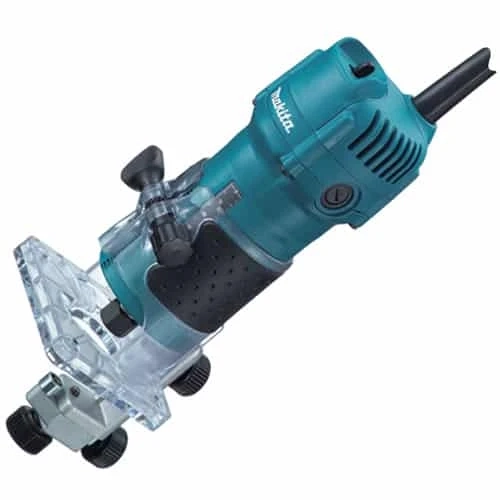A handheld router that is computer-controlled is known as a CNC router. This automatic tool is skilled at milling, boring, drilling, and cutting various materials.
The CNC router machine can operate with lightweight materials that sets it apart. Copper and aluminum workpieces and other softer, low-density materials are frequent targets for CNC routers. Additionally, CNC router machines are incredibly quick, even though the lower torque and rotating speed of router bits may appear to be a limitation.
The CNC router makes up for its lack of weight (in comparison to milling machines) with performance. It is very repeatable and can produce precise, accurate, complex shapes.
Here is a thorough guide to assist you if you are determined to get your first CNC router.
What to consider before buying a CNC Router Machine?
1. Application and capability
You’ll quickly discover that not every CNC machine is appropriate for the task at hand when you start your search for one. A high-quality CNC machine is precisely adjusted to your specific application’s requirements and capacity.
2. CNC Router machines are servo or stepper motor machines.
Typically, stepper motors have 50 to 100 magnetic poles. Servo motors typically only have 4–12.
More magnetic poles can increase accuracy and precision without position feedback. Naturally, stepper motors make precision much simpler. Stepper motors are more accessible and less expensive. For the same thing, servo motors frequently require a position encoder. Servo motors offer the advantage of temporarily delivering double their rated torque and are generally more efficient, although less prevalent.
3. Weight of the CNC Router Machine
Generally, heavier machines are better built and operate better. This typically results in less vibration and more precise cutting. However, you must consider how frequently you need to move your CNC machine. If so, you might wish to use a router machine that is lighter.
4. The quality of the router machine
If you choose less expensive router parts, they will break and wear out more frequently, requiring more time to replace. Investing a bit more money upfront is advisable to avoid several problems later.
5. Size and Capacity
The project’s size and requirements impact a CNC router’s capability.
The projects you would work on would be very different from those of a seasoned woodworker if you were a beginner operator. A 48-working area CNC machine often fulfils various needs for novices, college students, and small-scale companies. Similarly, a Mini CNC router would be more suited for smaller firms, whereas top-tier industrial CNC versions are preferred by larger businesses.
You must account for the area you have in your workshop when determining the permissible size. You should also consider how to transport the device to your site. Transporting CNC equipment is no easy task, and if your router is huge, you might need to hire a company for the same.
6. Accessibility
Since we’re talking about space, it’s important to note that where you place your CNC router makes a huge difference. For instance, it can permit or prohibit access to particular areas. The placement of electrical supply points and the amount of electricity needed to power the machine must also be considered. To reduce mobility, you must also reevaluate your inventory placement and how the finished goods are transported from the device.
7. Durability
A CNC router is a strong workhorse when used normally. Machine durability is frequently a source of worry, even though wear and tear is an unavoidable side effect of using it. To begin with, it is a symbol of excellence. You shouldn’t work with a router machine that allows the workpiece to slip or use blunt tools. Durability is also a byproduct of the maintenance procedures required for the machine to operate at peak efficiency.
Why is a CNC Router Machine required?
1. CNC routers can improve the financial performance of your workplace by reducing procurement expenses by 30%, and by accelerating both large-scale and do-it-yourself projects.
2. It can process many materials, including marble, copper, foam, and polymers.
3. CNC routers add automation since they are computer-controlled, which lowers operating, labour, and processing expenses and boosts your bottom line.
4. It lessens wastage, which could result in increased operating costs.
5. You can purchase CNC routers with compatible cutting fields if you work with large workpieces to simplify the operation.
6. Excellent repeatability, which can be a major concern when generating high-precision tasks, is something that CNC routers excel at.
7. A CNC router has a much higher production capacity than a traditional router because of its fast speed, increased accuracy, and decreased waste.
8. CNC routers are used in various sectors and verticals from advertising to carpentry.
9. CNC router operations are simpler because they are automated.
10. It reduces the need for manual handling and machining of the workpieces, which enhances worker safety.
Conclusion
A CNC router may be used to cut just about anything, from billboards to cabinets. Selecting the ideal CNC router for your needs is the challenging part, though. How do you decide which option is best for you? Industry Buying has the best CNC router machines at the ideal prices for you.



